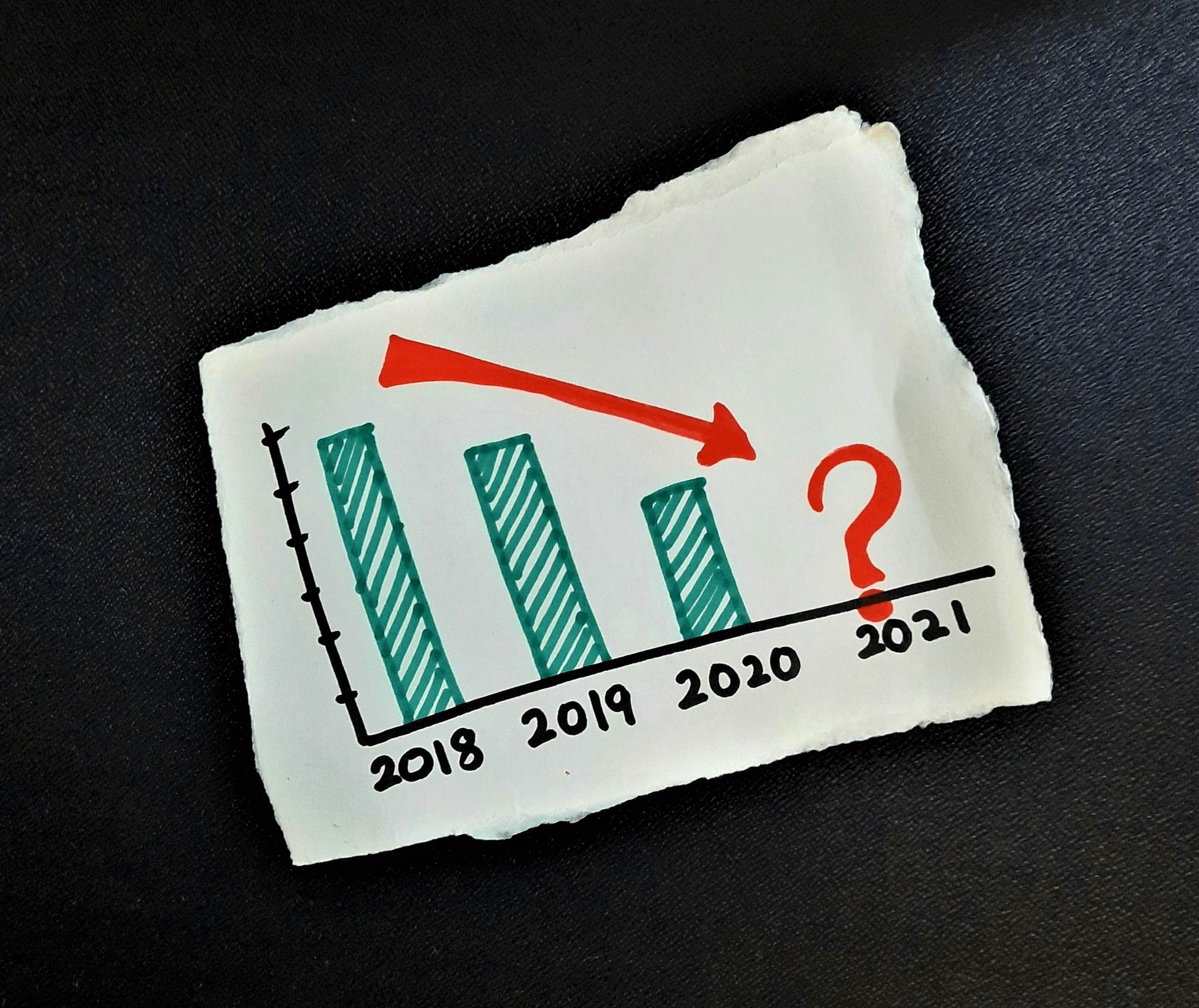Introduction
In today’s fast-paced business landscape, understanding KPIs for suppliers is crucial for any organization aiming to enhance its supply chain performance. These key performance indicators serve as vital signposts, guiding companies like SSOURCING INC. toward improved efficiency and effectiveness in supplier management. By leveraging KPIs, businesses can not only measure their suppliers' performance but also drive strategic improvements that lead to long-term success.
Understanding KPIs for Suppliers
KPIs for suppliers are metrics that help organizations assess the effectiveness and reliability of their supply chain partners. They provide a framework for evaluating various aspects of supplier performance, from delivery times to product quality and compliance with industry standards. By establishing clear KPIs, SSOURCING INC. can foster transparency and accountability in supplier relationships, ensuring that both parties are aligned in their goals.
The Importance of Supply Chain Efficiency
Supply chain efficiency is the backbone of any successful business operation; it directly impacts profitability and customer satisfaction levels. When organizations prioritize efficiency through well-defined KPIs for suppliers, they can streamline processes, reduce costs, and improve overall service delivery. At SSOURCING INC., a commitment to enhancing supply chain efficiency translates into better products at competitive prices for our customers.
How KPIs Drive Supplier Success
KPIs drive supplier success by providing actionable insights that allow both suppliers and buyers to identify areas of improvement and celebrate achievements alike. With regular monitoring and evaluation of these indicators, companies like SSOURCING INC. can create a culture focused on continuous enhancement in supplier relations—ultimately leading to stronger partnerships and enhanced competitiveness in the market. Embracing a KPI-driven approach not only boosts individual supplier performance but also elevates the entire supply chain ecosystem.
Key Performance Indicators Overview

In the realm of supply chain management, KPIs for suppliers serve as vital metrics that help businesses gauge performance and efficiency. Understanding these indicators is essential for both suppliers and companies like SSOURCING INC. to thrive in a competitive landscape. By establishing clear KPIs, organizations can better align their goals with their suppliers' capabilities, fostering a more effective partnership.
Defining KPIs for Suppliers
KPIs for suppliers are quantifiable measures that assess various aspects of supplier performance, including delivery timelines, quality standards, and cost efficiency. These indicators provide a framework for evaluating how well suppliers meet contractual obligations and contribute to the overall supply chain success. Defining these KPIs requires an understanding of business objectives and the specific areas where supplier performance can impact those objectives.
Different Types of KPIs
There are several types of KPIs that organizations can utilize to monitor supplier performance effectively. Some common categories include operational metrics (like on-time delivery), quality metrics (such as defect rates), and financial metrics (including cost per unit). Each type plays a crucial role in providing a holistic view of supplier effectiveness, allowing SSOURCING INC. to make informed decisions based on comprehensive data analysis.
The Role of KPIs in Supply Chain Management
KPIs for suppliers play an indispensable role in supply chain management by facilitating transparency and accountability throughout the procurement process. They enable businesses to identify areas needing improvement while also highlighting top-performing suppliers who contribute positively to operations. By leveraging these indicators effectively, companies like SSOURCING INC. can cultivate stronger relationships with their suppliers, driving continuous improvement across the entire supply chain ecosystem.
1. On-Time Delivery Metrics

Timeliness is the backbone of supply chain success, and it’s no wonder that on-time delivery metrics are pivotal KPIs for suppliers. When a supplier consistently delivers products on schedule, they not only meet customer expectations but also foster stronger relationships with their clients. SSOURCING INC. recognizes that a reliable supply chain can significantly enhance operational efficiency and customer satisfaction.
Importance of Timeliness in Supply
The importance of timeliness in supply cannot be overstated; it directly affects inventory management, production schedules, and ultimately, customer satisfaction. When suppliers fail to deliver on time, businesses face disruptions that can lead to lost sales and damaged reputations. By focusing on KPIs for suppliers related to delivery performance, companies like SSOURCING INC. can ensure that their operations run smoothly and efficiently.
Moreover, timely deliveries contribute to a positive cash flow cycle—when goods arrive as expected, businesses can sell products faster and reinvest profits into growth initiatives. This creates a win-win situation where both suppliers and buyers benefit from improved efficiency and profitability. Therefore, tracking on-time delivery metrics is essential for maintaining a competitive advantage in today’s fast-paced market.
Calculating Delivery Performance
Calculating delivery performance involves several key metrics that collectively provide insight into how well a supplier meets their commitments. One common method is the On-Time In-Full (OTIF) metric, which assesses whether deliveries arrive on time and include all ordered items in the correct quantities. By analyzing these KPIs for suppliers regularly, companies like SSOURCING INC. can pinpoint areas needing improvement or recognize top-performing partners.
Another approach is to calculate the percentage of late deliveries over a specified period; this helps organizations understand trends in supplier reliability over time. A lower percentage indicates better performance and may warrant further collaboration with those suppliers who consistently meet or exceed expectations. Ultimately, having an accurate picture of delivery performance allows businesses to make informed decisions about their supplier relationships.
Real-Life Examples of Successful Suppliers
Several successful suppliers have mastered the art of timely deliveries by implementing effective strategies centered around KPIs for suppliers. For instance, Company X leveraged advanced logistics technology to optimize its distribution routes—resulting in an impressive 98% OTIF rate over two consecutive years! This commitment to timely service not only enhanced customer loyalty but also positioned them as industry leaders.
Similarly, Supplier Y adopted robust communication protocols with their clients to ensure transparency regarding any potential delays or issues upfront—this proactive approach significantly reduced misunderstandings and improved overall satisfaction ratings among customers using SSOURCING INC.’s services as well! Such examples highlight how focusing on delivery metrics can transform ordinary suppliers into extraordinary partners within the supply chain ecosystem.
2. Quality Control Standards

Quality control is the backbone of any successful supplier relationship, and measuring product quality is paramount to achieving this goal. KPIs for suppliers should focus on various metrics such as defect rates, adherence to specifications, and customer satisfaction scores. By monitoring these indicators, SSOURCING INC. can ensure that suppliers meet the required standards and deliver products that consistently satisfy end-users.
Measuring Product Quality
To effectively measure product quality, it’s essential to establish clear KPIs for suppliers that reflect both quantitative and qualitative aspects of performance. Common metrics include first-pass yield (the percentage of products manufactured correctly without rework), return rates due to defects, and customer complaints related to quality issues. By analyzing these KPIs regularly, SSOURCING INC. can identify trends in supplier performance and implement necessary improvements before problems escalate.
The Impact of Quality on Supplier Relationships
The relationship between quality and supplier performance cannot be overstated; high-quality standards foster trust and reliability in partnerships. When suppliers consistently meet or exceed quality expectations as defined by KPIs for suppliers, it leads to stronger collaboration and mutual growth opportunities. Conversely, poor quality can strain relationships, resulting in lost contracts or increased scrutiny—something that SSOURCING INC. aims to avoid at all costs.
Case Studies: Quality Champions in Industry
Several companies have set benchmarks for excellence through their commitment to quality control standards—let's take a look at a few case studies that exemplify this principle in action. For instance, Company A implemented rigorous testing protocols that resulted in a 30% reduction in defects over two years while simultaneously enhancing customer satisfaction scores significantly; their KPIs for suppliers were pivotal in this transformation. Similarly, Company B established a collaborative feedback loop with its suppliers focused on continuous improvement based on shared data insights—this led to both parties enjoying enhanced reputations within the industry.
3. Cost Management and Efficiency

Cost management is a crucial aspect of supplier performance, directly influencing both profitability and competitiveness in the market. For suppliers, understanding and tracking cost efficiency KPIs can mean the difference between thriving and merely surviving. SSOURCING INC. emphasizes that effective cost management not only helps in maintaining healthy margins but also fosters stronger relationships with clients by delivering value without sacrificing quality.
Tracking Cost Efficiency KPIs
Tracking cost efficiency KPIs allows suppliers to measure their financial performance accurately and identify areas for improvement. Common KPIs include cost per unit, total supply chain costs, and inventory turnover rates; these metrics provide insights into where money is being spent and how it can be optimized. By regularly monitoring these KPIs for suppliers, organizations can make informed decisions that lead to enhanced profitability and reduced waste.
Moreover, utilizing technology such as dashboards or analytics software can streamline this process, allowing for real-time tracking of expenses against budgeted figures. This proactive approach enables suppliers to adjust strategies promptly, ensuring they remain competitive while keeping costs in check. At SSOURCING INC., we advocate for a data-driven approach to managing costs, as it empowers suppliers to make strategic adjustments based on accurate information.
Balancing Cost and Quality for Suppliers
Finding the right balance between cost reduction and maintaining product quality is a delicate dance that every supplier must master. While lower costs can attract more business initially, compromising on quality often leads to higher returns or customer dissatisfaction down the line—a scenario no supplier wants to face. Therefore, implementing effective KPIs for suppliers that monitor both cost efficiency and quality metrics ensures that neither aspect is neglected.
Suppliers must continually evaluate their processes to find efficiencies without sacrificing the standards expected by their clients. Regular feedback loops from customers regarding product performance can help pinpoint areas where improvements are needed without incurring excessive costs. At SSOURCING INC., we believe that fostering a culture of continuous improvement among suppliers will lead them not only towards greater profitability but also towards stronger market positions.
Insights from Industry Leaders on Cost Control
Industry leaders often highlight innovative strategies when it comes to controlling costs while maximizing efficiency—insights that are invaluable for any supplier looking to enhance their operations through effective KPIs for suppliers. One common theme is the importance of collaboration across the supply chain; working closely with manufacturers or logistics partners can unveil hidden inefficiencies ripe for improvement.
Additionally, successful companies often employ lean methodologies, which focus on eliminating waste while enhancing productivity—an approach that has proven beneficial across various sectors. SSOURCING INC.’s experience shows that those who embrace these insights tend not only to thrive financially but also to build resilient relationships with customers based on trust and reliability.
4. Compliance and Risk Management

In the intricate world of supply chains, compliance and risk management are not just buzzwords; they are essential components for ensuring smooth operations. Suppliers must navigate a maze of regulations, standards, and expectations to maintain their credibility and reliability. At SSOURCING INC., we recognize that understanding KPIs for suppliers in this context can significantly mitigate risks while enhancing overall performance.
Importance of Regulatory Compliance
Regulatory compliance is crucial for suppliers as it ensures adherence to laws and industry standards, promoting safety and quality in products. Non-compliance can lead to hefty fines, damaged reputations, or even legal action—none of which any supplier wants on their plate! By establishing clear KPIs for suppliers that focus on compliance metrics, organizations can track adherence levels effectively, ensuring that everyone stays on the right side of the law.
Moreover, regulatory compliance fosters trust between suppliers and their clients. When suppliers demonstrate a commitment to meeting required standards through measurable KPIs for suppliers, they build stronger partnerships based on reliability and accountability. This trust is vital in maintaining long-term relationships that benefit both parties.
KPIs for Risk Assessment
Risk assessment is another area where KPIs play a pivotal role in supplier management. By implementing specific KPIs for suppliers focused on risk indicators such as financial stability or operational disruptions, companies can proactively identify potential threats before they escalate into significant issues. These metrics provide valuable insights into the health of the supply chain and enable timely interventions when necessary.
For example, tracking delivery delays or quality complaints can serve as early warning signs of underlying problems within a supplier's operations. At SSOURCING INC., we advocate using these insights to develop action plans that address risks head-on rather than waiting until they become critical failures. This proactive approach not only safeguards your supply chain but also enhances overall efficiency.
Learning from Failures: What Suppliers Can Avoid
Learning from past failures is an invaluable lesson for any supplier aiming to improve its performance through effective KPI utilization. Many companies have faced setbacks due to inadequate risk management practices or failure to comply with industry regulations—issues that could have been avoided with proper foresight and planning around KPIs for suppliers. By analyzing these failures, organizations can identify gaps in their processes and implement strategies to prevent similar situations from occurring again.
Take note of case studies where companies faced severe penalties due to non-compliance; these cautionary tales highlight the importance of staying informed about regulatory changes affecting your industry. Furthermore, by sharing these lessons within your organization—and beyond—you contribute to a culture of continuous improvement among peers in the supply chain sector.
In conclusion, effective compliance and risk management hinge upon well-defined KPIs for suppliers that allow businesses like SSOURCING INC. to monitor performance actively while safeguarding against potential pitfalls.
Conclusion

In wrapping up our exploration of KPIs for suppliers, it’s clear that these performance indicators are not just numbers on a report; they are the lifeblood of supplier success and supply chain efficiency. By effectively implementing and analyzing KPIs, organizations like SSOURCING INC. can maximize supplier performance, ensuring that every link in the supply chain is strong and resilient. Ultimately, leveraging KPIs for suppliers leads to improved operational strategies that benefit everyone involved.
Maximizing Supplier Performance with KPIs
Maximizing supplier performance with KPIs involves setting clear benchmarks that align with strategic goals while being realistic enough to achieve. SSOURCING INC. understands that by consistently monitoring key metrics such as on-time delivery and quality control standards, companies can identify areas for improvement and drive operational excellence. This proactive approach transforms potential pitfalls into opportunities for growth, ensuring suppliers not only meet but exceed expectations.
Building Stronger Supplier Relationships
Building stronger supplier relationships is essential in today’s competitive landscape, and KPIs play a pivotal role in this process. When both parties have a transparent understanding of performance metrics, trust flourishes—leading to more collaborative partnerships. At SSOURCING INC., we believe that fostering open communication around KPIs for suppliers creates an environment where feedback is welcomed, helping to enhance collaboration and innovation.
Continuous Improvement and KPI Evolution
Continuous improvement is the name of the game when it comes to effective supply chain management, particularly concerning KPIs for suppliers. As market conditions change and new challenges arise, it's crucial to evolve your KPI framework accordingly—adapting your strategies based on real-time data insights ensures you remain agile and responsive. At SSOURCING INC., we advocate for regular reviews of KPI effectiveness; after all, what works today may need tweaking tomorrow!

